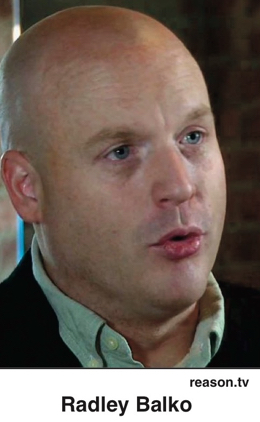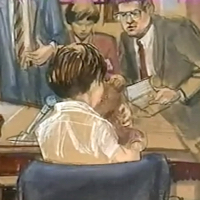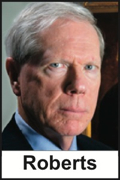Rascals case in brief
In the beginning, in 1989, more than 90 children at the Little Rascals Day Care Center in Edenton, North Carolina, accused a total of 20 adults with 429 instances of sexual abuse over a three-year period. It may have all begun with one parent’s complaint about punishment given her child.
Among the alleged perpetrators: the sheriff and mayor. But prosecutors would charge only Robin Byrum, Darlene Harris, Elizabeth “Betsy” Kelly, Robert “Bob” Kelly, Willard Scott Privott, Shelley Stone and Dawn Wilson – the Edenton 7.
Along with sodomy and beatings, allegations included a baby killed with a handgun, a child being hung upside down from a tree and being set on fire and countless other fantastic incidents involving spaceships, hot air balloons, pirate ships and trained sharks.
By the time prosecutors dropped the last charges in 1997, Little Rascals had become North Carolina’s longest and most costly criminal trial. Prosecutors kept defendants jailed in hopes at least one would turn against their supposed co-conspirators. Remarkably, none did. Another shameful record: Five defendants had to wait longer to face their accusers in court than anyone else in North Carolina history.
Between 1991 and 1997, Ofra Bikel produced three extraordinary episodes on the Little Rascals case for the PBS series “Frontline.” Although “Innocence Lost” did not deter prosecutors, it exposed their tactics and fostered nationwide skepticism and dismay.
With each passing year, the absurdity of the Little Rascals charges has become more obvious. But no admission of error has ever come from prosecutors, police, interviewers or parents. This site is devoted to the issues raised by this case.
On Facebook
Click for earlier Facebook posts archived on this site
Click to go to
Today’s random selection from the Little Rascals Day Care archives….
Click for earlier Facebook posts archived on this site
Click to go to
Today’s random selection from the Little Rascals Day Care archives….
Exoneration depends on catching eye of media
 Oct. 3, 2012
Oct. 3, 2012
“You can have all the evidence in the world, and that’s still only 50 percent of the fight. The other 50 percent is media.
“You have to get the media to pay attention. If not, they’ll sweep it under the rug and keep going.”
– Damien Echols of the West Memphis Three, analyzing (in the New York Times) his continuing struggle for exoneration.
If you’re in the media – reporter, editor, blogger, author, moviemaker, aerial advertising entrepreneur – and ready to pay attention to the Edenton Seven, let me hear from you.
The imaginations run amok were not the children’s
 May 27, 2015
May 27, 2015
“Here’s an observation from the (“satanic ritual abuse” day-care) panic that I don’t think has been fully explored: These kids didn’t make up these stories.
“In this case (of Fran and Dan Keller) and dozens of others, the kids were telling tales with details about geography, history and current events about which kids of their age couldn’t have known. That’s likely what made their stories seem somewhat credible. But the fact that it all was fictitious reveals a particularly unsettling truth:
“These sick, lurid, unimaginable abuses could only have been a product of the imaginations of the therapists, social workers, cops and/or prosecutors who interviewed the children. If the memories were implanted, those are the only people who could have implanted them.
“That means that the same people entrusted to protect these kids, and in whom these communities trusted to police the streets, prosecute crimes and administer therapy, were ultimately the ones capable of dreaming up detailed sexual fantasies that put children in bizarre rituals involving violence, animals, corpses and so on.
“There’s a lot to be learned from these cases. For one, there are lessons about professional accountability:
“Not only were the vast majority of the prosecutors who put these innocent people in prison in these cases never sanctioned, but also most went on to great professional success, sometimes because of their role in these high-profile cases, and sometimes even after it was widely known that the people they prosecuted were innocent.
“There are other lessons here about how we screen ‘expert’ witnesses, and how bad science gets into the courtroom. There are lessons about the power of suggestion that could be applied to eyewitness testimony and how we conduct police lineups.
“But the drawing of lessons is something we typically do once a crisis is over. This one still isn’t. There are “still people in prison awaiting exoneration.”
– From “The ongoing legacy of the great satanic sex abuse panic” by Radley Balko in the Washington Post (May 26)
Is there something about “satanic ritual abuse” cases that knocks courts off their game? Although the Texas Court of Appeals manages to overturn (at last!) the child sexual abuse charges against day-care operators Fran and Dan Keller, it can’t bring itself to acknowledge their actual innocence. Thanks to Judge Cheryl Johnson for her clear-eyed concurring opinion noting that “This was a witch hunt from the beginning.”
How ‘Innocence Lost’ changed one viewer’s life

pbs.org
Courtroom sketch from the “Innocence Lost” series.
March 16, 2016
“Thank you for providing a site to keep this tragedy alive…. I was a daycare/preschool owner/administrator for 20 years ending in 1995. The primary reason I retired early was watching (“Innocence Lost”) on PBS and realizing anyone at any time could accuse me of abuse lies and my life and career would have been ruined….”
– From a letter from a Wisconsin reader
Such fears were not unfounded, of course – or uncommon.
![]()
Did prosecutors sell out for name recognition?
 Nov. 12, 2012
Nov. 12, 2012
“It is not conceivable that any of the prosecutors (in cases such as Little Rascals) believed a word of the charges responsible for ruining the lives of so many people. The cases were brought for one reason alone: to gain name recognition for the prosecutors.”
– From “The Tyranny of Good Intentions: How Prosecutors and Bureaucrats Are Trampling the Constitution in the Name of Justice” by Paul Craig Roberts and Lawrence M. Stratton (2008)
Could prosecutors really have sold their souls (not to mention their public trust) for mere “name recognition”? Or did their lust for guilty verdicts blind them to the obvious?
Most days, the latter seems more likely to me. Or perhaps a hybrid….
Indisputably, however, career benefits did attach to trumpeting from the courthouse steps that you’ve sent away Bob Kelly for 12 consecutive life sentences.











0 CommentsComment on Facebook